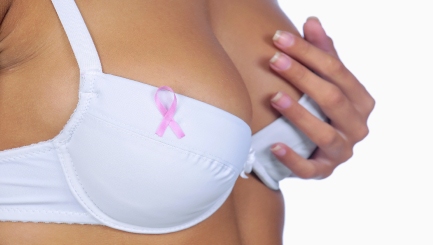Myth Busters: So You Think You Know Breast Cancer?
 Awareness of breast cancer is rising, which, though no bad thing, means that a certain number of wellness myths around the disease have become more prevalent too. It seems that, when it comes to breast cancer, now everyone’s an expert but I wouldn’t stake my wellbeing on it if I were you.
Awareness of breast cancer is rising, which, though no bad thing, means that a certain number of wellness myths around the disease have become more prevalent too. It seems that, when it comes to breast cancer, now everyone’s an expert but I wouldn’t stake my wellbeing on it if I were you.
Firstly, people believe that women with a family history of breast cancer are the only ones at risk, but not only is this not the case, they’re not even in the majority. About 70% of cases occur with no identifiable risk factors for the disease. However, your breast cancer risk is increased two-fold if a first-degree relative (a parent, sibling, or child) has had or has breast cancer, and having two first-degree relatives with the disease increases your risk even more.
Next, wearing an underwire bra does not increase your risk of getting breast cancer. Though many people claim that this kind of bra compresses the lymphatic system of your breast, causing toxins to accumulate and cause breast cancer, this is a myth that has been widely debunked by scientific evidence. The tightness of any kind of clothing does not increase your risk of cancer.
Further, if you feel a lump, that doesn’t mean it’s most likely cancerous. Though doctors say you should report any lumps for early detection, just in case, roughly 80% of lumps in women’s breasts are caused by benign or non-cancerous changes, cysts, or other conditions. Also, while we’re on lumps, this isn’t the only sign of cancer you should be on the look out for. Swelling, skin irritation or dimpling, breast or nipple pain, nipple retraction (turning inward), a discharge other than breast milk or redness, scaliness, or thickening of the nipple or breast skin can all be signs of breast cancer.
Finally, though a prophylactic or preventative mastectomy reduces your risk of developing breast cancer by an average of 90%, that doesn’t mean that you’re not at risk of developing it at all. Some women do get breast cancer after a mastectomy, whether at the site of the scar or in other places, where the original cancer may have spread. Though it’s a small chance, women at high risk of breast cancer who have their breasts removed can still get breast cancer.


Comments are closed.